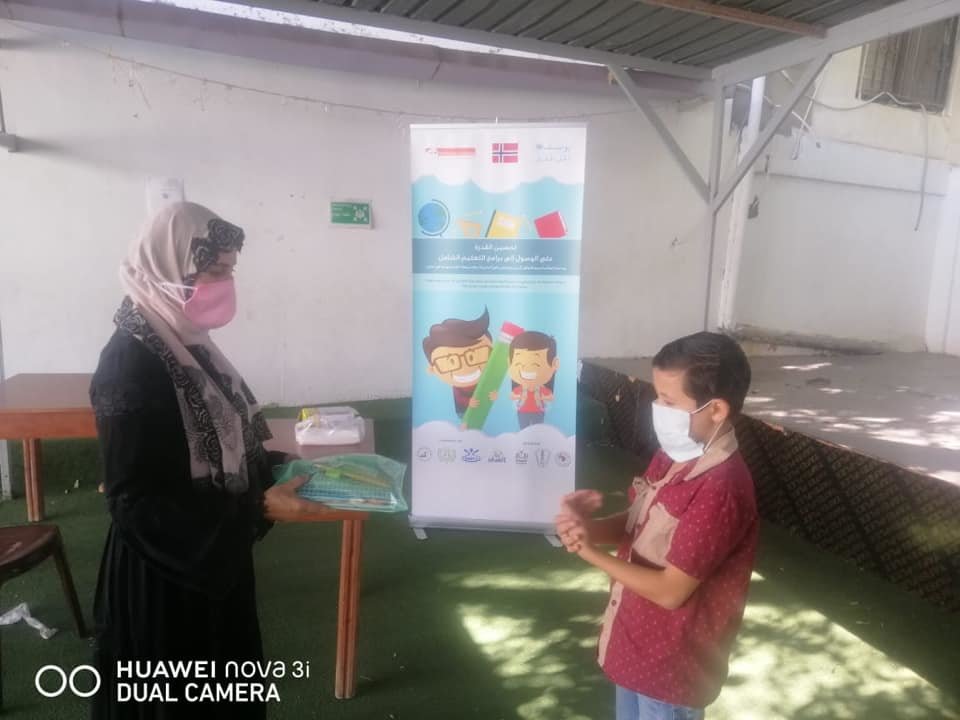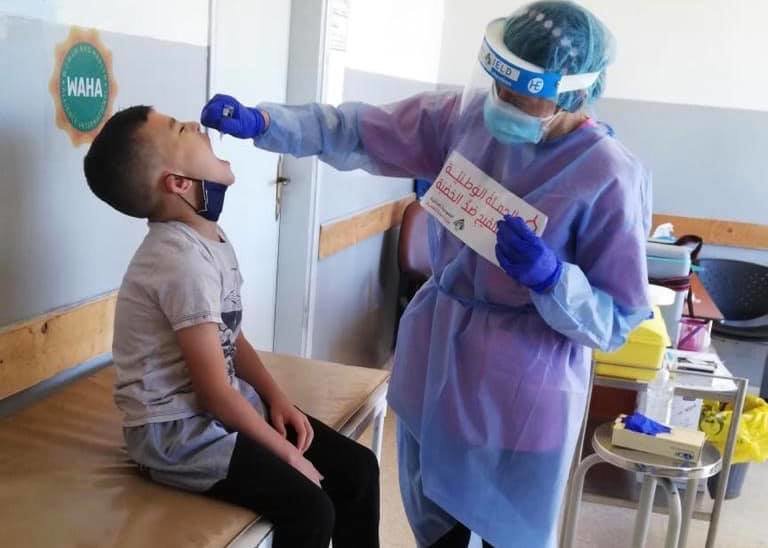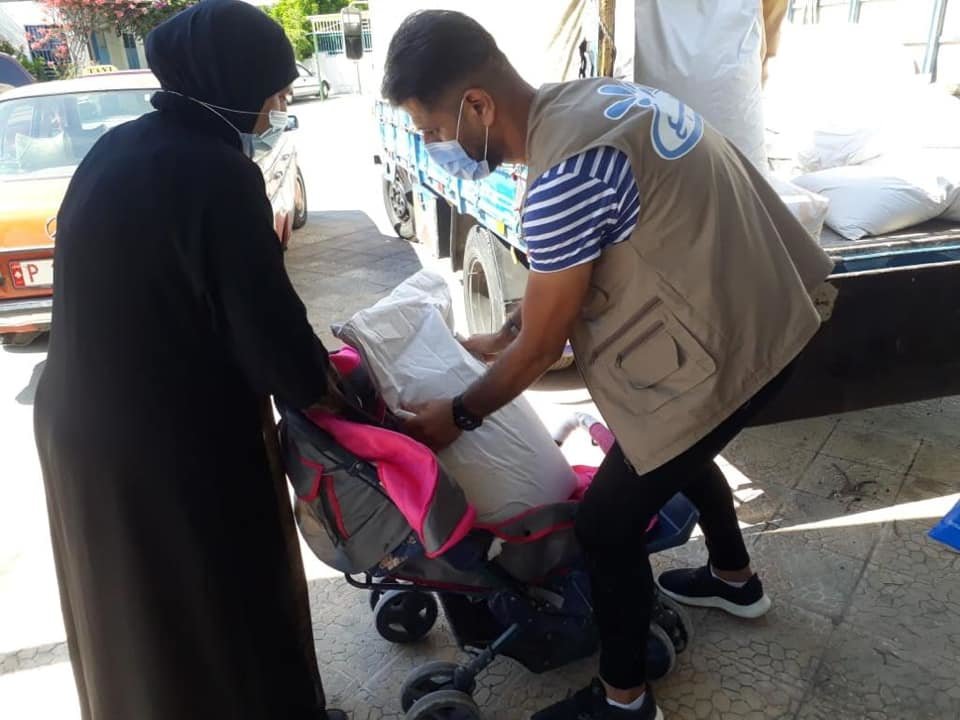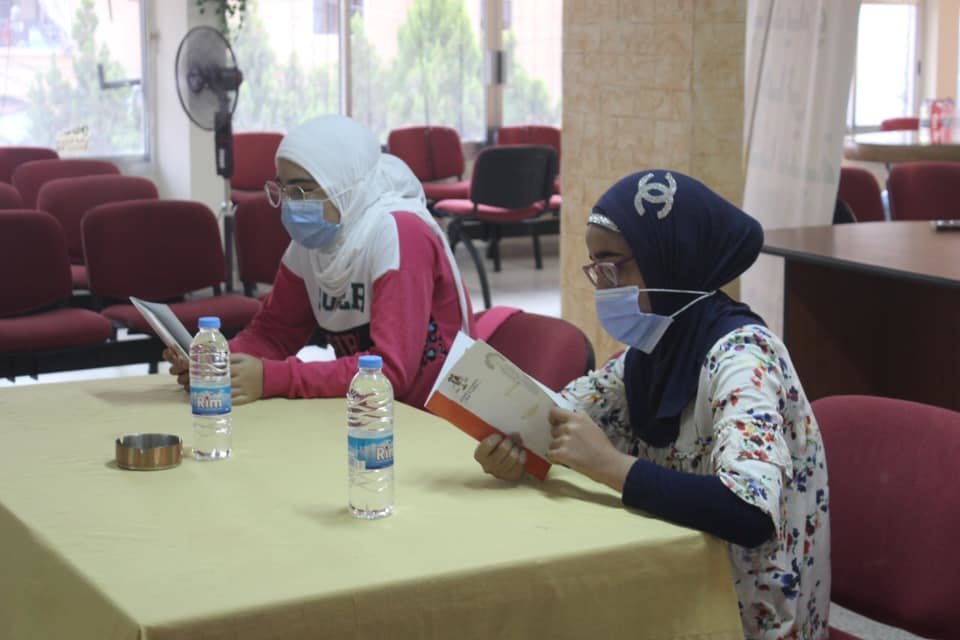By Hiba Hamzi | Program Coordinator
Background during and after the implementation of the project;
Lebanon, which shares a border with Syria, has an estimated 1.1 million refugees, both Syrian refugees and about 450,000 Palestinian refugees, many of whom were born in Lebanon and have been displaced. With a total population of only 4.4 million, the massive 25% increase means a strain on already deteriorating resources and space as well as an overall impact.
Walking into a refugee camp is like walking into a desperately overcrowded slum. The camps are only one kilometer long and accommodate between 25,000 and 37,000 people. Refugees struggle for even the most basic of needs. For electricity, families must string live wires to dozens of other wires, above the tiny walkways around the settlements. Every few weeks, someone gets electrocuted. Many houses are about to collapse, and most people needing care are not able to access hospital treatment. Those most seriously ill die.
Conditions in the camps are extremely challenging, with no clean water and high rates of violence against women and children. Inhabitants of the camps are in constant danger from exposed live electrical wires, a daily threat as the government refuses to supply electricity to the camps. Many refugees cannot get jobs. They are excluded from about 70 jobs including taxi drivers, according to Global Fund for Women grantee partners Tadamon and Palestinian Women’s Humanitarian Organization, leaving primarily menial labor like plumbing, cleaning, or construction available to them. Lebanese law does not extend citizenship rights to Palestinians or Syrians living in the country, limiting access to public healthcare and education in addition to jobs and increasing social harassment and stigma for refugees.
Naba’a Achievements; During the last period, The most highlighted achievements during the last period;
Case Study;
Name: T.H.
ü Bad economic situation
ü Threatened by dropout from school
ü Abused by her fiancé
Her family consists of five members; she is the eldest daughter. They suffer from poverty especially after her father’s death when she was at the age of 17. By that time, she was preparing for her Brevet but her father’s death affected her psychologically, so she was forced to dropout from school. Her educational level was good and her dream was to become a chef, but her family’s economic situation was bad, which affected her dream.
That is all what she said when we visited her for the first time at home and asked her about the profession that she wants to learn.
At the time of her participation in the project’s workshops about GBV, Protection and risks of early marriage, she told social worker about her engagement. When she was 17 years old, she got engaged to her cousin who was 24 years old. She said that, at the beginning of the relationship, her fiancé was good, but when his family interfered and talked about her poverty, she felt psychological pressures. They were talking and arguing about her family all the time without even hearing their decisions. Plus, they tried to control her, which increased the psychological stress that lead her to breakup.
After her breakup, her family supported and helped her to feel better which affected positively on her psychological state. When we started the activities, she had recently broken up with her fiancé., we helped her to put a new plan for her life and start to achieve her dreams. After that, she studied to become a Pastry Chef and tried to teach some children at home to help her family financially. Now she is knowledgeable about relationships, and thanks to her participation in the workshops and awareness-raising sessions she became totally aware of her future relationships.
We always follow-up on her through activities such as lesson follow-up, in addition to encouraging her to have ideas, then we discuss the project topics with her in addition to her personal life.
Links:
Project reports on GlobalGiving are posted directly to globalgiving.org by Project Leaders as they are completed, generally every 3-4 months. To protect the integrity of these documents, GlobalGiving does not alter them; therefore you may find some language or formatting issues.
If you donate to this project or have donated to this project, you can receive an email when this project posts a report. You can also subscribe for reports without donating.
Support this important cause by creating a personalized fundraising page.
Start a Fundraiser


